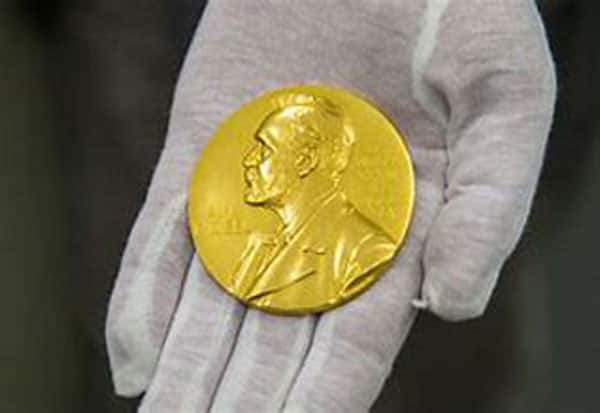/
செய்திகள்
/
Kalvimalar
/
News
/
Nobel economics prize goes to three researchers for explaining innovation-driven growth
/
Nobel economics prize goes to three researchers for explaining innovation-driven growth
Nobel economics prize goes to three researchers for explaining innovation-driven growth
Nobel economics prize goes to three researchers for explaining innovation-driven growth
UPDATED : அக் 14, 2025 03:37 PM
ADDED : அக் 14, 2025 03:39 PM

Stockholm: Three researchers who studied business innovation won the Nobel Memorial Prize in Economics Monday for explaining how new products and inventions drive economic growth and improve human welfare, while often disrupting older companies.
The award was shared by Dutch-born Joel Mokyr, 79, at Northwestern University; Philippe Aghion, 69, at the Collège de France and London School of Economics; and Canadian-born Peter Howitt, 79, at Brown University.
The trio's work clarified and quantified “creative destruction,” the process in which innovations replace older technologies and businesses—a concept first outlined by Joseph Schumpeter in 1942. Examples include e-commerce replacing retail, streaming services overtaking DVDs, and automobiles supplanting horse-drawn carts.
John Hassler, chair of the Nobel committee, said, “Economic growth cannot be taken for granted. We must uphold the mechanisms that underlie creative destruction to avoid stagnation.” Howitt and Aghion's research showed that markets dominated by a few companies can hinder innovation and growth, emphasizing social mobility and support for workers affected by transitions.
Mokyr, an optimist about technological innovation, noted that new services like Spotify provide enormous benefits even if their impact is hard to measure in economic data. He acknowledged that disruption can cause short-term job losses, but also creates unexpected new opportunities.
The committee highlighted that economic stagnation was historically the norm until the Industrial Revolution. Aghion stressed Europe must foster research, venture capital, and competition to keep pace with the US and China, noting that artificial intelligence has “huge growth potential” depending on supportive policies.
Mokyr and Howitt said they were surprised by the award, while Aghion called it “the dream prize.”
The 11 million Swedish kronor (nearly $1.2 million) prize is split with half to Mokyr and the other half shared by Aghion and Howitt. Winners also receive an 18-carat gold medal and a diploma. The economics award, formally the Bank of Sweden Prize in Economic Sciences in Memory of Alfred Nobel, was established in 1968 and is presented alongside the five original Nobel Prizes.


